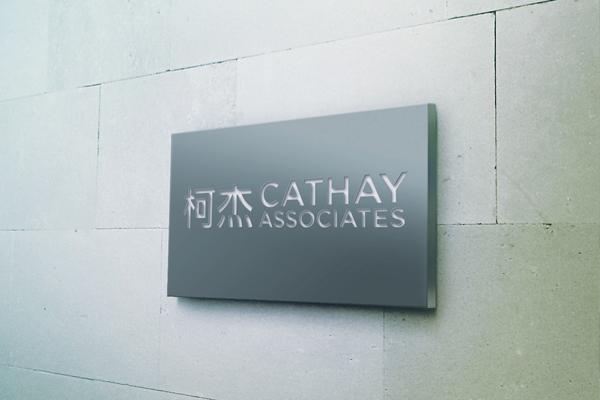CUSTOMS LEGISLATION
THE DECISION OF THE COUNCIL OF MINISTERS NO. 366, DATED 30.4.2015 ON SEVERAL AMENDMENTS AND ADDITIONS TO DECISION NO. 205, DATED 13.4.1999, OF THE COUNCIL OF MINISTERS, “ON THE IMPLEMENTING PROVISIONS OF THE CUSTOMS CODE”, AS AMENDED”.
The implementing provisions of the Customs Code have undergone several amendments related to the local clearance.
The local clearance enable customs procedures to be carried out at the premises of the economic operator, putting the goods in the relevant customs regime at the premises of the interested economic operator or in other premises set or approved by the General Directorate of Customs.
Each person may apply for obtaining a “local clearance” authorization, for personal use or as a representative provided that all conditions and criteria are fulfilled as applied and the competent customs authority is enabled to carry out the identification of the represented persons and the adequate customs controls.
TAX LEGISLATION
The Decision of the Council of Ministers no. 434, dated 20.5.2015 On the setting of the regulations for spillages, losses, damages and discards during production, warehouse and transport, etc. as recognized for tax purposes.
Losses and spillages in the production process, which are not treated by special legal and sublegal acts, as well as their permitted amount and value, are calculated based on the technological cards or schemes of the production process.
Within 45 days from the entering into force of this decision, each taxpayer shall submit to the Tax Regional Directorate the documentation for the approval of spillages, including:
- The technological card;
- The detailed description of the
- production process;
- The Plan of the facility;
- The consumption regulations of the raw material and the working our per end-product unit (technological card), including data for: the kind of raw material used in the production process; the phases in the production process, where the raw material is used.
The technological card shall be confirmed/certified by a recognized institution, having the technical capacity to confirm technological cards, such as: National Agency of Natural Resources (AKBN), National Food Authority (AKU), Institute of Building Materials, General Directorate of Standards, Directorate of Patents and Trademarks, relevant State Inspectorates, National Agency of Drugs and Medical Equipment, institutions approving different technological cards or any other institution having the capacity to relate with the relevant technological processes.
Spillages approved by the regional tax directorates (DRT), based on this decision, are recognized for tax purposes for periods not anterior to the official approval date of the DRT.
PHARMACEUTICAL LEGISLATION
The Decision of the Council of Ministers no. 359, dated 29.4.2015 On the approval of the regulation for the principles and instructions of the good practice of drugs, for human use, in the Republic of Albania.
This regulation regulates the domestic pharmaceutical production and sets instructions to be followed by manufacturers for each production phase starting from the premises, human resources, quality control, etc.
LEGISLATION ON WATER USE
The Decision of the Council of Ministers no. 416, dated 13.5.2015 On the approval of the general and special conditions, the accompanying documents, the validity term, the application forms for authorizations and permits, the examination procedures for making decisions and the other authorization forms for water sources’ use.
THE DCM SETS:
- The general and special conditions of the authorizations and permits for water use,
- Requests for authorization and permit for water sources’ use and accompanying documents,
- The authorization form and permit for the water sources’ use
ENERGY LEGISLATION
Law no. 43/2015 dated 30.4.2015 On the electric power sector
This is the new law that regulates the relations in the production, transmission, distribution and supply with electric power activities, and sets the rules regarding:
- Launching, organizing and functioning of a competitive electric power trade;
- Participation in the electric power trade;
- Granting authorizations and licenses in the electric power sector;
- Regulating the activities in the electric power sector, customer protection, supply security and creation of competitive structures in the electric power trade;
Law no. 9072, dated 22.5.2003, “On the electric power sector”, as amended, and any other legal provision in breach of this law is abolished.
The sublegal acts regulating the activity in the electric power sector, approved before the entering into force of this law shall be applied to the extent they are not in breach of this law until their review and the issuance of new sublegal acts, in compliance with the terms and requests set in this law.
PETROLEUM LEGISLATION
The Decision of the Council of Ministers no. 411, dated 13.5.2015 “On the procedures and conditions for the granting and repetition of the concessionary license of oil pipelines for import, export and transport of crude oil”
Each legal person organized as a shareholder company may apply to obtain the concessionary license for oil pipelines for the performance of crude oil transport, import and export activities, in compliance with the rules as set in this Decision.
The legal person interested in obtaining the concessionary license of oil pipelines for the performance of crude oil transport, import and export activities shall obtain first the preliminary approval and fulfill the conditions as set in this Decision.
All applications as submitted to the relevant ministry for petroleum before the entering into force of this Decision shall be treated based on Decision no. 553, dated 12.8.2004, of the Council of Ministers “On the procedures and conditions for granting the concessionary licenses for the construction and use of refineries, oil and gas pipelines “.



